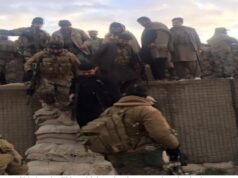What is going on inside the power Centre of China?

By Ryosei Kokubun
Article 10, Paragraph 6 of the Chinese Communist Party’s constitution prohibits the cult of personality. However, this provision is effectively ignored by the Xi Jinping administration. At political study sessions within the party, participants hand-copy and recite Xi’s writings and submit their study records. At schools, if teachers make the slightest criticism in relation to Mr. Xi during class, they will be punished based on monitoring records or accusations from student informers. It’s as if China has returned to the dark ages of the Cultural Revolution in the 1960s.
Meanwhile, in late October, Li Keqiang, who retired as premier in March, passed away suddenly. Whether the cause of death is natural or not is being debated. It is not surprising that one smells political struggle behind his death, as there were rumors that Li and Zeng Qinghong, Li’s former political opponent and the octogenarian head clerk of the faction formerly led by Jiang Zemin, have formed a coalition to oppose the dictatorial Xi administration.
Li’s funeral was held on high alert. After the then-premier Zhou Enlai’s death in 1976, the Maoist Gang of Four blocked a public memorial rally in Tiananmen Square, which led to major riots. The Tiananmen Square massacre of 1989 was triggered by a memorial service for Hu Yaobang, who favored democratization. History has its lessons.
Mr. Xi has no successor. In 2018, the constitutional provision that the president can serve two five-year terms was removed. Even before that, there was no term limit for the general secretary of the party in the party constitution. Internal rules introduced during the Hu Jintao era, did set two-term limits on senior party and state posts, however, they were somehow ignored. Moreover, most of the key personnel who were elected at the party congress last fall, including members of the Politburo of the CPC Central Committee, were occupied by Mr. Xi’s entourage. None of the 24 Politburo members are women. It’s extreme male domination.
The Xi Jinping regime appears to be rock-solid. This regime is often compared to the Mao era, but history shows that Mao had become a lonely, naked king at some point. That’s why Mao conspired to destroy the party organization and regain power with the Cultural Revolution. Deng Xiaoping handed over the post to a young man and built a group leadership system. Deng’s inclusion of a prohibition on the cult of personality in the party constitution was to prevent Mao’s recurrence.
The Xi Jinping regime’s lack of a successor is the first in the history of the People’s Republic of China. The issue of succession is the biggest factor that causes divisions within the party. Even if a successor has been decided, there have been many cases in the past where he was dragged down in the ensuing power struggle. The biggest flaw in Chinese politics is the lack of rules for choosing a successor. That’s why fierce power struggles become permanent. This is especially true if a successor has not been decided.
After the founding of the country in 1949, Mao installed Liu Shaoqi as his successor, but destroyed Liu with the Cultural Revolution. In the midst of this, Mao then nominated Lin Biao as his next successor, but Lin died mysteriously in the “Mao Zedong assassination plot.”
Shortly before his death, Mao summoned Hua Guofeng to his bedside and personally nominated him, saying, “If you do it, I will feel safe,” but after Mao’s death, Hua was forced out by Deng. Since then, these last words of Mao have become an ominous joke among Chinese scholars, suggesting that the person who hears those words is doomed to eventually fall.
Deng did not rise to the top himself, installing Hu Yaobang as his successor, but Hu was ousted as party general secretary because he tolerated the student pro-democracy movement. Later, Zhao Ziyang, who took over the post of general secretary, was also ousted in the Tiananmen Square incident.
In the end, prior to his death, Deng named two people, Jiang Zemin as the first successor and Hu Jintao as the one after Jiang, like past Chinese emperors had done in order to ensure the safety of the future. Deng decided on these two because they were “trustworthy” people who would not let the party be destroyed, i.e., people who would listen to what he told them.
Therefore, Jiang did not have the right to nominate a successor. For that reason, the Jiang faction grabbed all posts and interests available, delaying the succession of power to Hu by clinging to posts such as the chairman of the Central Military Commission.
The election of General Secretary Xi Jinping in 2012 was decided through compromise politics involving the Jiang and Hu factions, as well as the so-called party princelings. The son of a former deputy prime minister who had gone through tough times during the Cultural Revolution, Xi was considered “trustworthy.”
Recently, strange reports are dominating the media. Qin Gang, who was serving as foreign minister, suddenly disappeared from the center stage. Li Shangfu, who was the defense minister, has disappeared as well. His predecessor, Wei Fenghe, has also been silent for some time. Commander Li Yuchao of the Rocket Forces, which operates nuclear weapons and missiles, was also dismissed.
Speaking of which, there is also the curious fact that Wang Shaojun, the head of the CPC Central Guard Bureau, who protects Mr. Xi, died in April this year, but it was not made public until July. During this period, senior officials of the Chinese Football Association, who were probably close to Mr. Xi, a big football fan, were also detained en masse.
What is happening in China’s center of power? What we can see is that Mr. Xi’s handpicked aides that he himself has promoted are disappearing from the stage one after another. The circulated reasons are political corruption and scandal, but that is probably not the main story. The explanation that Mr. Xi himself is removing his untrustworthy aides one after another is also unreasonable. So, what is the real reason? After all, I can’t think of anything other than a power struggle. In other words, these are side attacks on Mr. Xi from his political opponents.
Mao launched the Cultural Revolution when President Liu Shaoqi and his wife were on a trip to Southeast Asia. Just before the Tiananmen Square incident, Zhao Ziyang was usurped by Li Peng and others while visiting North Korea. For those in power, traveling abroad can be politically risky.
At the summit of the five emerging economies, Brazil, Russia, India, China, and South Africa (BRICS), in South Africa in late August, there is a video of Mr. Xi looking perplexed when his security detail was blocked upon his entry into the summit venue. The issue has developed into a matter of responsibility for the Ministry of Foreign Affairs. Why did he miss the G20 summit in India, where he was expected to meet with U.S. President Joe Biden? It was perhaps not only the issue of Mr. Xi’s safety, but also the issue of the power struggle that had begun to develop.
The Asia-Pacific Economic Cooperation (APEC) meeting will soon be held in San Francisco. The world is abuzz with debate about the fate of the upcoming U.S.-China summit on the sideline. On the occasion of his visit to the U.S., one would like to say “have a safe trip,” but inside China, he may be troubled by internal party affairs that are far more serious for him than APEC.
In short, the extraordinary authoritarianism of the Xi Jinping regime appears to be the flip side of the loneliness and fear of an authoritarian leader. The lesson of history is that there is nothing more frightening than an isolated leader.
Profile: Ryosei Kokubun
Ryosei Kokubun received his PhD in law from Keio University. He served as the dean of the Faculty of Law and Politics and the director of the Institute of East Asian Studies at Keio, and was the president of the National Defense Academy of Japan from 2012 to 2021. He is currently a visiting scholar and Payne Distinguished Fellow at the Freeman Spogli Institute’s Walter H. Shorenstein Asia-Pacific Research Center (APARC) at Stanford University.




